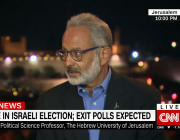Can too much participation harm democracy? Democratic theory places great importance upon the conduct of elections, but it is not often recognized that the electoral game takes place in two arenas, not only between parties but also within them. This pioneering book presents a new approach to understanding political parties. It sheds light on the inner dynamics of party politics and offers the first comprehensive analysis of one of the most important processes any party undertakes – its process of candidate selection. Candidate selection methods are the mechanisms by which a party chooses its candidates for the general elections. It may be the function that separates parties from other organizations. For such an important function, this field has certainly faced a dearth of serious investigation.
Praise for Democracy Within Parties
"Hazan and Rahat give us the first systematic framework for describing and analyzing candidate selection methods within political parties. Following in the tradition of Schattschneider, Dahl, and Sartori, they also give us a powerful corrective to the mantra that more internal democracy will automatically both reverse party decline and improve democracy at the system level."
Richard Katz, Johns Hopkins University
"Compared with the dramatic hoop-la of election campaigns, the prior process of nominating candidates has long remained hidden . But this process is also vital - for voter choice, inclusive parliaments, and democracy. This insightful and original study compares candidate selection across multiple democracies and provides fresh insights into why it matters."
Pippa Norris, Harvard University
"If 'democracy is unthinkable save in terms of the parties' (Schattschneider), we need more knowledge about one critical partisan function: selecting candidates. Hazan and Rahat's book is an essential contribution to our understanding of this underappreciated aspect of political parties."
Matthew Shugart, University of California - Davis



